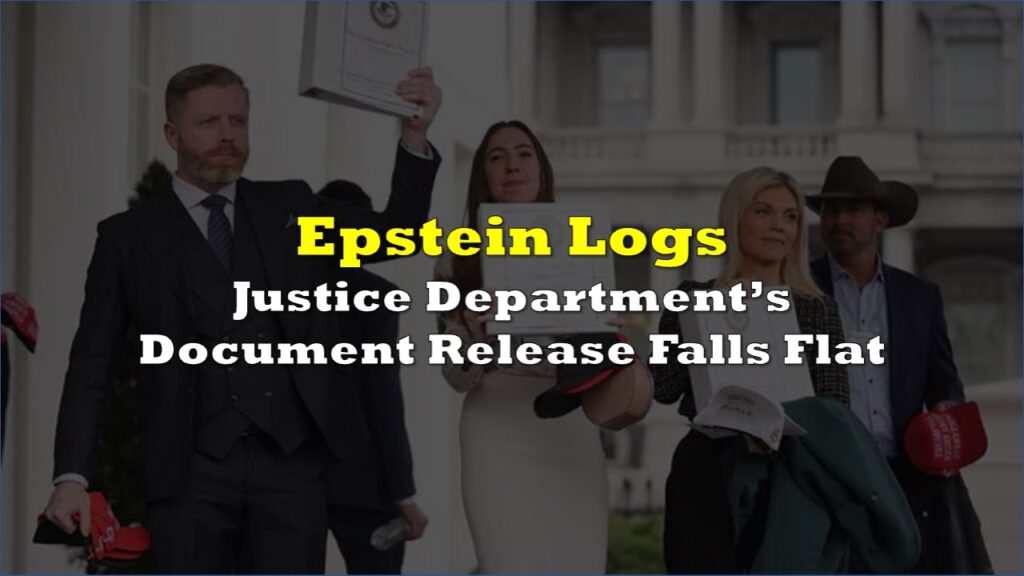Lawyers familiar with the investigation into fraudulent Covid-era loans say that the Department of Justice’s COVID-19 fraud enforcement task force is shifting its focus to financial institutions that enabled fraudulent loans to be approved and released for funds that were meant to support struggling businesses during the pandemic.
The DOJ is now said to be turning the probe into the banks liable for rubber stamping fake loans made available under the more than $1 trillion in federal spending.
The government will have to overcome forgiving Trump-era guidance that banks are eager to use in defense, and proving a bank willfully failed to notice phony applications may not be enough.
“In many cases, ‘should’ve known’ is enough to prove fraud, but I’m not sure that ‘should’ve known’ is enough in a case under the CARES Act, unless the lender itself is the one that caused the problem,” said Gregg Shapiro, a former DOJ civil enforcement chief who investigated COVID-19 loan fraud at the pandemic’s outset.
New Bloomberg Story- Covid Loan Fraud Probe Turns To the Bankers Who Approved Them. DOJ looking at Banks, Fintechs for approving false loans.
— Buyside of Wall Street Leonard, CFA holder, MBA (@buyside4life) May 22, 2023
Well, well, well they can start with Cross River Bank@ParrotCapital @AlderLaneEggs @Cryptadamist #crossriverbank pic.twitter.com/gmtriU0DJm
Larger banks with more sophisticated preventative processes are less vulnerable, but regional and local institutions, as well as fintechs (or web-based financial services providers), are subject to increased scrutiny.
Last October, the DOJ revealed that prosecutors had confiscated $1.2 billion in COVID relief money, charged over 1,500 defendants with crimes, and investigated over 1,800 persons and entities for alleged civil misconduct.
However, the agency has only been successful in its first-ever False Claims Act settlement with a Paycheck Protection Program lender—a regional bank in Texas and Oklahoma that agreed to pay $18,673.50 for allegedly processing an ineligible customer’s loan.
The False Claims Act, a 19th-century civil statute widely used against businesses for cheating government entities, remains a solid instrument for the DOJ to try to collect taxpayer monies from CARES Act lenders.
A 10-year statute of limitations granted by Congress, however, offers adequate time for investigators to develop cases in the financial sector. During recent speaking appearances, the DOJ’s acting COVID enforcement chief Michael Galdo revealed a few specifics about his new focus.
“We can identify particular lenders, particular financial institutions that really enabled this to happen,” said Galdo during a False Claims Act conference in February, citing data analysis and individual cooperators. Those cases, he says, will take longer to build, but “I think we’ll see more activity in that space.”
Fintechs are likely targets, as many of them were founded in response to CARES Act initiatives such as PPP and Economic Injury Disaster Loans for small enterprises, but lacked experience in creating anti-fraud measures.
However, financial institutions are ready to hold the government’s own 2020 words against it, particularly the Small Business Administration’s mandate to promote speed above scrutiny and assurances that lenders will be held “harmless” if they rely on information given by applicants.
The Bank Secrecy Act (BSA), which mandates financial institutions to combat money laundering, is another potential lever for the DOJ.
Due to the urgency of awarding COVID rescue money, the government waived most of the regular verification steps that lenders must follow before approving applications. However, the pandemic aid package still obliged them to set up BSA anti-money laundering procedures in order to undertake internal audits and flag problematic consumers.
Unlike established banks, new entrants hoping to profit from government processing fees for handling large numbers of PPP loans lacked pre-existing BSA compliance processes.
Early in February, the Republican-led House Oversight Committee held a hearing on the billions of dollars stolen through COVID-19 assistance programs, launching an inquiry against the Biden administration.
The hearing followed the release of a fresh report on Monday, which revealed that almost $5.5 billion in pandemic relief intended for small firms affected by COVID-19 shutdowns may have been diverted by fraudsters instead.
In response, President Joe Biden planned to ask Congress in March for $1.6 billion in extra funding to combat fraud related to pandemic assistance programs in the United States and assist victims of identity theft.
According to the White House, the financial request included $600 million to assist in the investigation of large-scale fraud by criminal syndicates, $600 million for fraud and identity theft protection, and $400 million to assist victims who have had their identities stolen.
Information for this briefing was found via Bloomberg Law and the sources mentioned. The author has no securities or affiliations related to this organization. Not a recommendation to buy or sell. Always do additional research and consult a professional before purchasing a security. The author holds no licenses.









